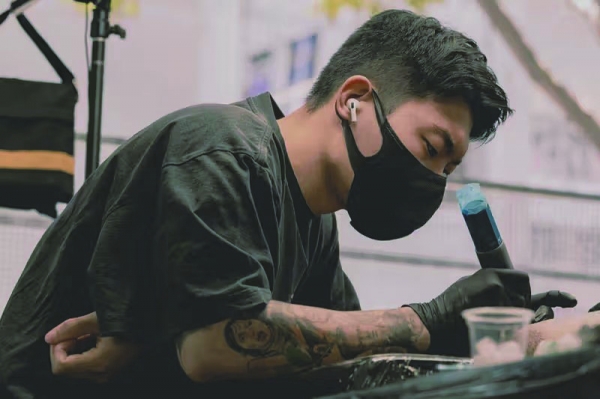
The Korean National Assembly has once again proposed the “Tattooist Law,” which legalizes tattooing procedures performed by non-medical professionals. According to the current medical law in Korea, the tattooing procedure can only be carried out by medical professionals - doctors to be more specific. This restriction, however, has been criticized for being outdated, as tattooing procedures have become increasingly common. The tattooing procedure under the limitation includes not only regular body tattoos but also semi-permanent makeup such as eyebrow tattoos, and according to the Korean Ministry of Health and Welfare (MOHW), it is estimated that around 13 million Korean citizens have received tattoos.
The current proposed bill is not the first time the National Assembly has introduced such a bill. Even before the current 22nd National Assembly, the 20th and 21st National Assemblies also proposed similar bills, but they were dismissed due to issues such as opposition from the medical community. Park Joo-min, chairman of the National Assembly’s Health and Welfare Committee, introduced the current bill and proposed guidelines for managing tattooing procedures. This included proposals on how the government could regulate the qualifications of tattooists and manage the hygiene and safety of tattoo studios.
Despite the recurring proposals of such bills, the medical community continues to express concerns about legalizing tattooing procedures. The Korean Medical Association (KMA) emphasizes that tattooing procedures could lead to skin infections and various infectious diseases and should be monitored by medical professionals. They also pointed out that tattoo colorants may contain harmful chemicals such as heavy metals, and that the removal of tattoos requires complex processes like laser surgery. The Korean Judiciary has also acknowledged these aspects of tattooing procedures. The Daegu District Court has stated, “Cosmetic surgery procedures, even if unrelated to the treatment of diseases, should be considered medical procedures if they could harm human life, health, public hygiene, or be misused,” during a citizen participatory trial on a tattooing procedure. In an appellate trial of the same case, the Daegu High Court pointed out that the use of anesthetic cream, the process of using needles to scratch the dermis layer of skin, and the injection of dyes into the skin should be considered medical procedures.
However, the statement of the court is based on current medical law, rather than addressing whether the law should be updated. Those who support the “Tattooist Law” bill claim that the current law does not reflect the reality of tattooing procedures performed today and should be revised. Tattoos, especially semi-permanent makeup, are widely undergone by the public today, and it is safe to say that very few licensed doctors perform such procedures as part of their regular practice. According to YTN news, Tattooist Kim Do-yoon also highlighted this irony during a parliamentary audit and explained how the medical law still does not embrace the job of “Tattooist,” when it is perceived as a legitimate occupation by the public and the government.
This irony underscores the necessity for a new system to manage tattooing procedures. Since most tattooing practices are carried out by non-medical professionals, it is challenging for the government to monitor these procedures and ensure their safety with the current law. As proposed in a currently submitted “Tattooist law” bill, if the government could regulate the qualification of the tattooist through licensing and qualification testing, it could ensure a safer environment for citizens to get tattoos. The bill also proposes the tattoo studios’ obligations to maintain a safe and hygienic environment, restricts minors from receiving tattoos without the consent of their guardians, and presents penalties for failing to comply with regulations for facility and equipment management. Such legalization and systematization of tattoo procedures performed by tattooists are expected to provide a safer environment for both tattooists and consumers.
While it is clear that the current medical law does not appropriately reflect the reality of tattooing procedures, the question of how to revise it remains unsolved. It is crucial to establish the scope of procedures that tattooists are authorized to perform and to develop a management strategy that consumers, doctors, and tattooists would all agree with.


